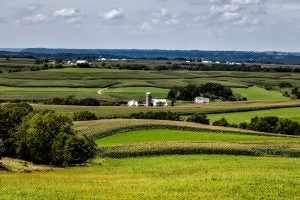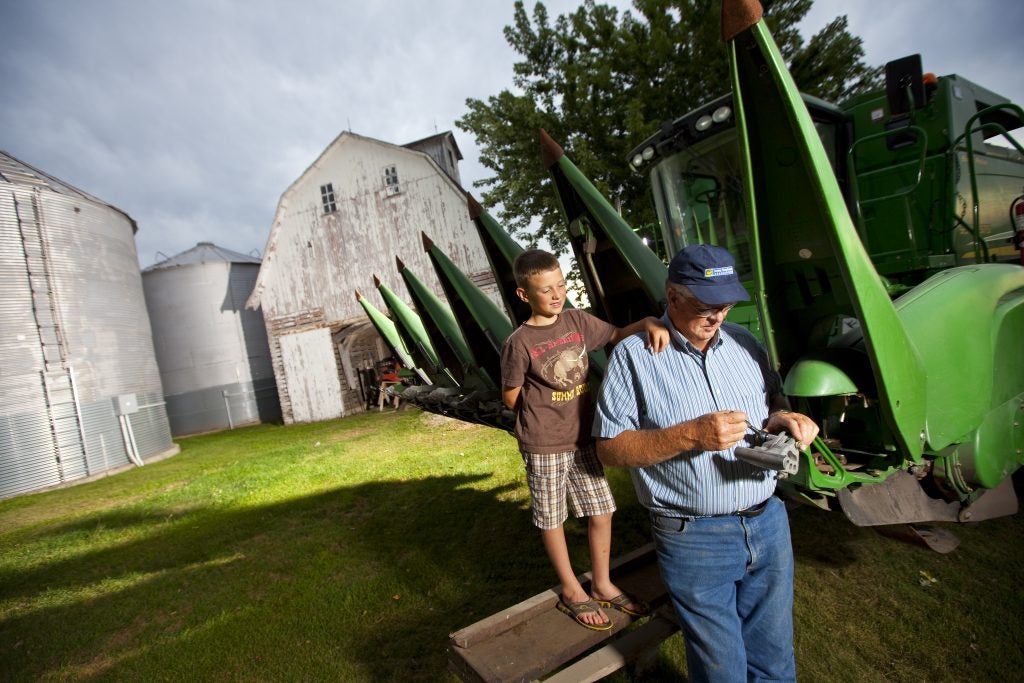 Like all Americans, I woke up on November 9 to a new reality: A few more Democrats in Congress, and yes, a President-elect who promised to dismantle our nation’s core environmental protections.
Like all Americans, I woke up on November 9 to a new reality: A few more Democrats in Congress, and yes, a President-elect who promised to dismantle our nation’s core environmental protections.
Though the overwhelming majority of rural counties voted for Donald Trump, I do not believe they voted to increase air and water pollution or jeopardize wildlife.
We live in amazing times. Compared to 40 years ago, our environment is healthier, even as our economy has grown 300 percent.
But 40 years is a long time ago, and it’s easy to forget that progress didn’t happen overnight. It took Republican and Democratic administrations to put our bedrock environmental protections in place so the rules laid out in them could be enforced. These laws include:
- A wildlife protection act that brought our national symbol, the bald eagle, back from the brink of extinction.
- A clean air act that has helped to reduce smog and acid rain that was threatening our children’s health and killing our forests.
- A water quality act that has cleaned up our rivers so they may never catch fire again. (Yes, the Cuyahoga River in Cleveland was so polluted that it ignited in 1969.)
Good stewardship and shared frustrations

I believe farmers and ranchers across the country value the benefits these safeguards have delivered to themselves and all Americans.
As my colleagues and I have walked their lands, we’ve been inspired by their commitment to good stewardship and continuous improvement. They want to leave what they have better off for future generations.
We also share some of their frustrations. The agencies established to protect our natural resources and the public’s health have become burdened with confusing and sometimes contradictory rules and procedures. These don’t do enough to foster innovation and cost-saving, public-private partnerships.
Incentives and innovation
To meet increased demands for food, water and shelter in the era of climate uncertainty, the stewards of our working lands need to make their operations more resilient to extreme weather and accelerate – not curtail – the march toward greater sustainability.
[Tweet “It’s time for Americans to rally around shared conservation values, via @davidfesta: https://edf.org/h2u”]
We don’t need to gut environmental laws and rules to hasten innovation. We need to enable the implementing agencies to greenlight incentives that allow people and nature to thrive.
We’re already off to a good start.
A few months ago, the U.S. Fish and Wildlife Service issued formal guidance for safeguarding wildlife that recommends habitat exchanges, a market-based approach for rapidly scaling up habitat conservation while allowing industry to move forward with their projects.
 In Nevada, one of the first states to create an exchange, nearly $1 million has flowed into landowners’ pockets this year to restore greater sage grouse habitat. These dollars have generated 5,500 credits, protecting 13,607 prime acres. The credits are now available for purchase by industries required to offset the impacts their operations may have on the bird’s habitat.
In Nevada, one of the first states to create an exchange, nearly $1 million has flowed into landowners’ pockets this year to restore greater sage grouse habitat. These dollars have generated 5,500 credits, protecting 13,607 prime acres. The credits are now available for purchase by industries required to offset the impacts their operations may have on the bird’s habitat.
The private sector has made progress on speeding up sustainability too.
To reduce greenhouse gas emissions and lower business risk in the supply chain, Walmart and several top food companies are now sourcing grain from farmers who optimize fertilizer use and employ other sustainable practices that keep nitrogen from escaping the field and harming our air and water.
Building on common ground
A common thread in these success stories is that we all focused on common ground. They may seem like no-brainer ideas but getting these things in place took many years of hard work. And in each case there were conflicts that ranged from the practical to the ideological, from the political to the economic.
I have deep gratitude for everyone’s commitment to the common good and the ultimate joy in getting something meaningful done over the transient pleasure of winning an argument – or an election.
My hope is that this election motivates more of that spirit. We know we can do better for people and the planet. We’re ready to do that.
Related:
These heartland conservation heroes defy stereotypes >>
Despite a new political landscape, landscape conservation commitments remain >>
Want to bring ag sustainability to scale? Collaboration not confrontation. >>









